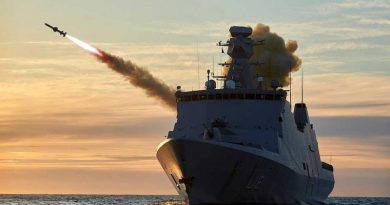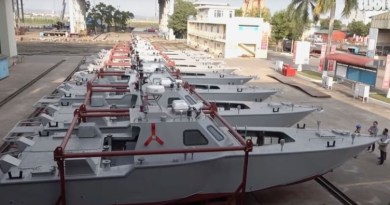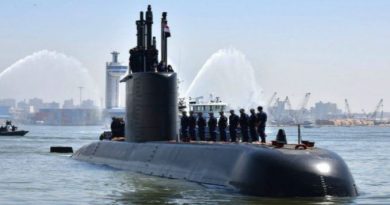NNS Lana (A499), Nigeria’s new hydrographic survey vessel arrives home
NNS Lana (A499), the Nigerian Navy’s new hydrographic survey vessel arrived in Lagos yesterday (17 May) from her maiden homeward journey from France.
Speaking at the reception ceremony at NNS Beecroft in Lagos, Chief of Naval Staff, Vice Admiral Awwal Gambo, said that the offshore vessel would serve as a source of revenue generation for the country and the Nigerian Navy because it will enhance the capacity of the Nigerian Navy to conduct hydrographic surveys, provide charting services for safe navigation and provide maritime security. Gambo added, “It is instructive to state that the federal government of Nigeria has embraced the Blue Economy initiative in line with United Nations sustainable development goal – 14 agenda. This entrenches the sustainable exploration and exploitation of vase resources in the nation’s maritime environment.”
NNS Lana is a purpose-built Offshore Survey Vessel, the new vessel was conceived as a replacement to the previous NNS Lana, a survey ship that was decommissioned about ten years ago.
OCEA launched the new hydrographic research vessel NNS Lana for the Nigerian Navy on 24 September, 2020. The new research vessel was subsequently delivered in April this year in a handover ceremony held in Saint Nazaire, France, with several dignitaries in attendance.
The new NNS LANA (A499) is designed and purposely built to enable the NN conduct hydrographic and oceanographic surveys. It is also capable of conducting geophysical studies, search and rescue operations as well as patrol duties. The Ship is equipped with state-of-the-art modern survey equipment as well as a well-equipped 7.6m surface vehicle for shallow water surveys.
NNS Lana (A499) is based on the OCEA OSV 190 SC-WB design. Furthermore, the Ship has an Automatic Weather Station (AWS), wet and dry laboratories, scientific and technical workshops as well as operating and processing rooms for survey data.
The machineries include 2 x MTU engines, 3 x CAT main generators/one emergency generator, electric propulsion system and other auxiliaries. The electric propulsion which is operated at survey speed is particularly installed to minimize distortion of data due to machinery noise. The Ship has a maximum speed of 14 knots and a capacity of 50 crew.






